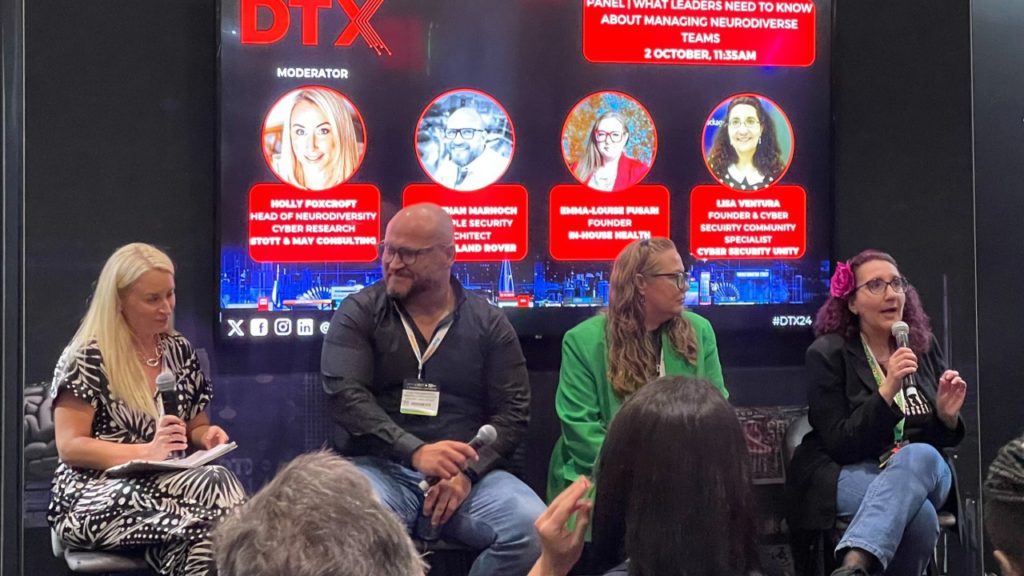It was fantastic to see so many great companies, friends and partners at the Digital Transformation EXPO in London yesterday but even better to see neurodiversity front and centre!
With a fantastic panel discussion from @Holly Foxcroft @jonathan Marnoch 👩⚕️ Emma-Louise Fusari RGN and Lisa Ventura MBE
Here’s some of the key points we learnt!
As businesses evolve, it’s no longer enough to simply talk about creating diverse and inclusive environments. True change happens when we go beyond ticking boxes and follow through with concrete actions that make workplaces welcoming for all individuals, including those who are neurodivergent.
Be Your Authentic Self—And Help Others Do the Same
Creating an inclusive environment starts with authenticity. Employers must foster spaces where employees feel safe to be themselves, without fear of judgment or misunderstanding. This means creating a culture where neurodivergent individuals can express their needs and strengths openly.
However, building this culture isn’t just about conversation. It requires meaningful, ongoing actions. According to a recent CIPD report, many businesses are missing the mark by focusing on policies without implementing practical, day-to-day changes that truly support neurodivergent employees. Credible resources and proper guidance are crucial in helping businesses take the right steps.
Healthy Boundaries and Reasonable Adjustments
A key part of supporting neurodiversity in the workplace is understanding the importance of healthy boundaries. Reasonable adjustments don’t always need to come with a hefty price tag. Simple measures such as allowing downtime, providing quiet spaces, or offering flexible schedules can go a long way in supporting neurodivergent employees. These adjustments allow individuals to work in their comfort zone and ultimately perform at their best.
Know the Resources Available
It’s essential to be informed about the resources at your disposal to support neurodivergent colleagues effectively. Jaguar Land Rover’s “Creatives Code” is an excellent example of how businesses can map out what works best for their teams. By openly sharing these insights, companies can prepare in advance for meaningful conversations with neurodivergent employees about their needs and how they work best.
Supporting Recruitment: Clear Communication Is Key
When it comes to recruitment, clear communication is paramount. Start by making sure candidates know exactly what to expect from the interview process. Offering the option to submit questions beforehand or use chat functions during virtual interviews can ease the pressure, allowing candidates to feel more in control.
Moreover, understanding social expectations, like eye contact or specific communication styles, can help you gauge whether you’re evaluating skills and qualifications, rather than unconscious biases. A detailed job description, clear expectations, and transparent communication about any changes in the process are critical to ensuring a smooth experience for neurodivergent candidates.
Different, Not Difficult
Finally, it’s important to remember that neurodivergent individuals are not difficult, they are different. As Lisa Ventura has pointed out, workplaces often need to shift their perspectives. Instead of seeing neurodivergence as a challenge, we should focus on how these differences can bring fresh perspectives and creative problem-solving to the table.
At Brookwood Recruitment, we are committed to continuing this conversation and taking meaningful actions to make workplaces more inclusive for everyone. By supporting neurodiversity through authenticity, proper resources, and open communication, we can all contribute to a more dynamic and inclusive future.
Let’s ensure we’re not just ticking boxes—but creating workplaces where everyone can thrive.
For more information on how we can support you and your teams through inclusive recruitment practices please drop us a message on info@brookwoodrec.com

